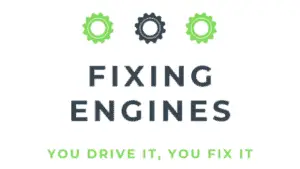You may have heard the claim that an engine’s horsepower decreases as it gets older. You may also be wondering just how true this is, and whether the decrease in horsepower is actually enough to have a significant impact on your car’s performance.
While it is true that cars can lose horsepower over time, in most cases it takes a considerable length of time and a significant amount of wear on the engine for the original power figure to decrease by any noticeable degree.
Let’s go over why this horsepower loss happens, and what you can do to keep your engine from losing too much power as the years go by.
Why Do Engines Lose Horsepower Over Time?
In general, engines lose horsepower with time because of wear and tear on an engine’s various components. However, the loss of an engine’s horsepower can usually be attributed to one or more of the following factors: an insufficient flow of air or fuel, poor compression, and improper combustion.
As you’re no doubt aware, an engine needs a steady supply of air and fuel in order to achieve combustion. Your engine may become starved for air if your air filter is clogged with old debris or if your exhaust system is not flowing as freely as it should. A worn-out valvetrain can also restrict your engine’s airflow.
Your engine’s fuel injectors may become clogged with time as well, and fuel pumps also tend to wear out after many years of use. Both of these issues can result in insufficient fuel delivery and decreased power.
Compression issues are another common cause of power loss in older vehicles. Your engine may experience problems with compression due to worn-out piston rings or carbon deposits on your intake valves. Both of these issues will result in a slight loss of air during the piston’s compression stroke.
Finally, problems with your engine’s spark can lead to a decrease in power. Carbon deposits will build up on old spark plugs, hindering their ability to ignite the air/fuel mixture in the cylinder. Carbon deposits can also build up on your pistons, which causes your pistons to develop “hot spots” that result in premature fuel combustion and engine knock.
How Much BHP Does a Car Lose Per Year?
Unfortunately, this is kind of an impossible question to answer, as there are tons of variables that can affect how an engine wears down over time. A car that has been driven carefully and properly maintained will retain more of its original power after the same amount of time compared to a car that has been abused and neglected its whole life.
Newer cars also lose power a lot more slowly than old cars do, as modern engines tend to be made with higher-quality materials and better technology.
Moreover, engines need a period of time to be broken in before they reach their peak operational ability, so for a short period of time after getting a new car, your engine’s power will actually increase a little bit.
Can You Regain Lost Horsepower?
It’s always possible to regain horsepower that has been lost to time. Obviously, you can gain more power through means like performing a complete engine rebuild, or swapping out your car’s old exhaust system for a new one; however, if you’re looking for a more cost-effective method of regaining lost horsepower, there are a few things you can try.
Cleaning out your fuel system can help you regain a few horsepower. You can try adding a cleaning additive to your fuel, which will remove any deposits within your fuel lines. You might also want to try cleaning out your fuel injectors, which you can do using an injector cleaning kit.
If you haven’t performed a basic service on your car in a while, that can also help you get back some lost horsepower. Make sure you change your air filter and engine oil at regular intervals, and you might also want to consider changing your spark plugs if you’ve been neglecting to do so.
How Much Does It Cost to Increase Horsepower?
Again, this is another question that doesn’t have a straightforward answer. This depends on how much you want to increase your horsepower by and through what means you intend to increase it.
A bottle of fuel cleaner might cost less than $20, for example, but if you’re trying to increase your horsepower by replacing your exhaust system, upgrading your air intake, or installing a high-performance ECU chip, a modification like this can run you anywhere from a few hundred dollars to over $1,000.
If you really want to increase your car’s horsepower, it’s best to first calculate your budget and then figure out what you can do within your budgetary restrictions.
Final Thoughts
While every car is inevitably going to lose some horsepower over time, for the most part you don’t have to worry about this affecting your car’s performance in any noticeable way. As long as you perform regular maintenance on your engine and generally take care of your car, you can lessen the amount of wear on your engine and retain more of your horsepower.
Additionally, if you’re looking to increase your car’s horsepower, there are several relatively easy ways you can go about doing this, such as installing an upgraded exhaust system, air intake, or ECU.

